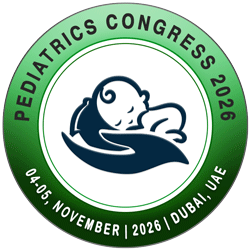Track: Advances in Neonatal Intensive Care Units (NICU) Technology
_Technology.webp)
Advances in NICU technology have significantly improved the care of premature and critically ill newborns. This session will cover the latest innovations in monitoring systems, respiratory support devices, and neonatal incubators, which help provide optimal care for vulnerable infants. Emerging technologies like non-invasive ventilation, advanced imaging techniques, and real-time data tracking have revolutionized the way healthcare professionals monitor and treat neonatal conditions. The session will also explore the role of artificial intelligence and machine learning in predicting and managing neonatal health outcomes. These advancements are vital for improving survival rates and long-term health for neonates in critical care.
Neonatal Monitoring Technologies
Explores the latest advancements in monitoring systems for neonates in the NICU, including continuous monitoring of vital signs (heart rate, oxygen saturation, blood pressure), ECG, and EEG for early detection of abnormalities and better patient management.
Advanced Ventilation Systems for Neonates
Focuses on cutting-edge ventilatory technologies such as high-frequency oscillatory ventilation (HFOV), non-invasive ventilation techniques (e.g., CPAP and BiPAP), and volume-targeted ventilation, to improve respiratory support and reduce lung damage in premature or critically ill neonates.
Neonatal Imaging and Diagnostic Tools
Examines new imaging technologies used in NICUs, including advanced ultrasound techniques, near-infrared spectroscopy (NIRS), and MRI, to diagnose neonatal conditions like brain injury, intraventricular hemorrhage, and congenital anomalies.
Point-of-Care Testing and Blood Gas Monitoring
Explores the advancements in point-of-care (POC) testing devices for rapid and accurate assessment of neonatal blood gases, electrolytes, glucose, and metabolic markers, enabling quicker clinical decisions and more personalized care.
Allergy and Infectious Diseases
It focuses on understanding, diagnosing, and managing immune system-related conditions and infections in children. It includes allergic reactions, autoimmune disorders, and microbial infections, emphasizing prevention, treatment, and improving pediatric health outcomes.
Neonatal Phototherapy and Bilirubin Management
Discusses innovations in phototherapy equipment for managing neonatal jaundice, including LED-based phototherapy systems, fiber-optic blankets, and the integration of bilirubin monitoring with automated therapy adjustments for better outcomes.
Artificial Intelligence (AI) in NICU Care
Focuses on the integration of AI and machine learning algorithms in NICUs for predictive analytics, early identification of risks, decision support systems, and automation of routine tasks, aiming to improve patient outcomes and reduce human error.
Share your research and insights on Advances in Neonatal Intensive Care Unit (NICU) Technology, driving innovation and improving outcomes for newborns. Click here to submit your abstract.
Scientific Highlights
- Innovations in Neonatal Surgery
- Pediatric Cardiology & Cardio Thoracic Surgery
- Pediatric Otolaryngology
- Pediatric and Neonatal Ophthalmology
- Pediatric and Adolescent Gynecology
- Perinatal and Neonatal Care
- Pediatric and Neonatal Diseases and Disorders
- Neonatal Growth and Nutrition Assessment
- Management of Preterm Birth Complications
- Pediatric Diabetes and Obesity Management
- Pediatrics and Neonatal Nursing
- Regenerative Medicine in Pediatrics
- Pediatric Orthopedics
- Pediatric Emergency and Critical Care
- Perinatal and Neonatal Oncology
- Advances in Neonatal Intensive Care Units (NICU) Technology
- Pediatric Nephrology


